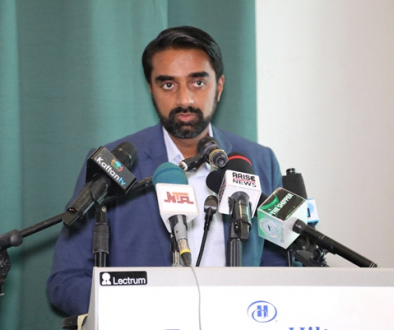Nigeria: Crummy Education @ Crunch Time by Kitan Babalola

To facilitate quality education, the United Nations has recommended that for any country to achieve quality basic education for all, at least 20% of the national budget must be allocated to education. Developing countries like Nigeria, are advised to allocate more (about 30%) in order to close the financing gaps in the sector and access more results. Also, the United Nations Children Education Fund (UNICEF) has further highlighted that features of quality education include:[1]
- Learners who are healthy, well-nourished and ready to participate and learn, and supported in learning by their families and communities;
- Environments that are healthy, safe, protective and gender-sensitive, and provide adequate resources and facilities;
- Content that is reflected in relevant curricula and materials for the acquisition of basic skills, especially in the areas of literacy, numeracy and skills for life, and knowledge in such areas as gender, health, nutrition, HIV/AIDS prevention and peace;
- Processes through which trained teachers use child-centered teaching approaches in well-managed classrooms and schools and skillful assessment to facilitate learning and reduce disparities;
- Outcomes that encompass knowledge, skills and attitudes, and are linked to national goals for education and positive participation in society.
It is clear from the characteristics above that education in Nigeria is far from attaining these benchmarks. Our education budget in the 2018 national budget is an appalling 7% of the total! Over the past 7 years, the highest percentage allocation to education has been 11%.
It’s crunch time Nigerians, we no longer have time to dawdle. Let’s not be weary in getting our education system right; our future depends on it..literally!
It is stale news that Nigeria is experiencing one of her most challenging phases since her existence. There’s the recent emergence from recession with consequences still largely felt by the citizenry, security threats from religious, tribal or fratricidal groups, inadequate infrastructural facilities to cater to the burgeoning population, a health sector functioning at a crippling rate, the ever-present giant called Corruption, the constant tirade of underperforming public service officials and the threat of the country dividing along ethnic, religious, cultural and linguistic lines are some of the challenges Nigeria has been experiencing over the last decade.
However, what makes these challenges seem a long way from being irredeemable is the quality of our human capital – the only resource the country has with which to coordinate the reversal of these ills. A country is not poor because it lacks material resources and wealth but only if its citizens lack the capacity for creativity. Capacity for creativity or innovation cannot be developed without the support of quality education; in fact it is the foundation on which creative minds, pioneers and visionaries build their ideas. It is therefore not a surprise how the rate of development has been directly linked to the level of quality education[2] and entrepreneurship (a result of creativity)[3] in an environment.
For the purpose of this article, let’s assume a definition of education by the Business Dictionary which states education is “The wealth of knowledge acquired by an individual after studying particular subject matters or experiencing life lessons that provide an understanding of something. Education requires instruction of some sort from an individual or composed literature.”[4] This definition encompasses formal, non-formal and informal education.
It is not surprising that we have about 10.5 million out-of-school primary-age children, that the children in school are not physically, mentally or psychologically ready to learn, that our school environments are largely dilapidated & ill-equipped, our curricula are not relevant to the knowledge economy we live in, majority of our teachers are not qualified, our learning outcomes are abysmal, graduates are unemployable, that Nigerians are one of the largest source of international student bodies in other countries and that we have one of the worst education indicators globally.[5] Most Nigerian children can only afford to attend public schools ergo the need and urgency to improve the sector.
I think we have pretty much “decried” this education crisis situation enough; expressing our criticisms and laments won’t solve anything but active steps would. Improving the sector is a gradual process but it is achievable and we can do it. Making a case study of Finland, a country with one of the best education systems,[6] we can borrow a leaf and create bespoke solutions for our education sector such as valuing of – and rigorous entry requirements for – the teaching profession; comprehensive and egalitarian public funding; effective pedagogical methods that build lifelong learners i.e. teaching encouragingly for the purpose that students learn, rather than punitively for the purpose that they meet the requirements of high-stakes external tests; adequate funding for special needs education (Yes, they are a vital part of our human resources!); well-designed and well-maintained school facilities; a relevant curriculum that also allows a seamless connection between general & technical education streams; and an education sector being managed by educators not business managers/administrators who “specialize” in education.[7]
Do share your thoughts via email at aviga@cbinigeria.com, on Twitter @CBiNGR, @PINS2015 with the hashtag #CrunchtimeNG.
[1] https://www.unicef.org/education/files/QualityEducation.PDF
[2] http://anale.feaa.uaic.ro/anale/resurse/37_E06_PopescuDiaconu.pdf
[3]https://books.google.com.ng/books?id=RnluAWEJmp0C&pg=PA13&lpg=PA13&dq=Links+between+education+creativity+and+development&source=bl&ots=KzhfaebuHl&sig=cGYJJLkyYu3E_Oy4WzQdyhLTqNU&hl=en&sa=X&ved=0ahUKEwiD46SmmdLXAhWLCewKHTXfAqkQ6AEIWzAH#v=onepage&q=Links%20between%20education%20creativity%20and%20development&f=false
[4]http://www.businessdictionary.com/definition/education.html
[5] http://punchng.com/facing-the-emergency-in-nigerias-education/
[6] https://www.smithsonianmag.com/innovation/why-are-finlands-schools-successful-49859555/
[7] http://www.theage.com.au/national/education/the-simple-reasons-behind-finlands-educational-success-20150204-136887.html


